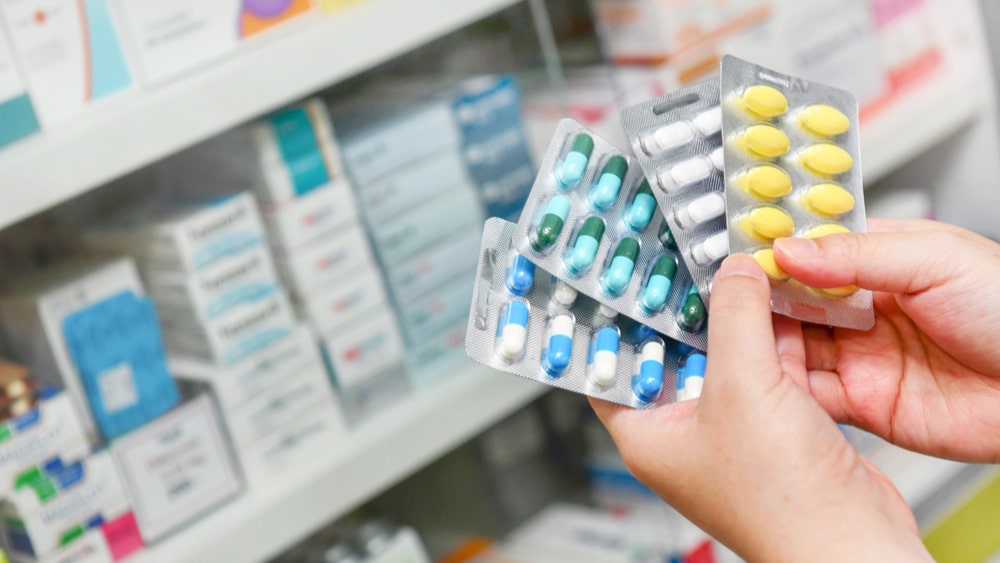Learn More About
Treating Addiction
What is Over-the-Counter Drug Abuse?
Many people think that over-the-counter (OTC) medicines are harmless when used as directed, but a growing number of Americans have begun abusing these drugs. When taken in regular doses and at the correct intervals for whatever ailment they’re meant to treat, OTCs can be safe solutions with few side effects.
Many doctors recommend these remedies because they interfere less than other medications do with natural processes like breathing or heart rate regulation. But every day, we hear about new cases of OTC drug abuse—people misusing them despite warnings from physicians about how dangerous this is for their bodies’ ability to function normally long term.
How Do People Abuse Over-the-Counter Medications?
Some people can’t function or sleep without taking certain medications, and it becomes an addiction that is hard to stop using. Others have different intentions: some want the high from painkillers, while others crave hallucinations brought on by cough medicine. In turn, people end up with over-the-counter drug abuse problems when they decide to take OTC medicines inappropriately.

Why is it so Hard to Spot OTC Drug Abuse?
Learning to spot OTC drug abuse can be difficult. The drugs are often taken casually and easily accepted because they’re legally sold in stores. As a result, OTC drugs and OTC drug abuse come without the stigma associated with dealing with illegal substances like heroin or cocaine.
Since people don’t see OTC drug abuse for what it is – a severe problem – many loved ones may not recognize signs of a growing problem until their family member starts developing serious health issues.
The Most Frequently Abused Over-the-Counter Medicines
Cough Syrups with Dextromethorphan or DXM
When swallowed at a low dose, these medications can help ease symptoms from colds and other throat ailments. However, when an overdose occurs, many side effects occur. These include hallucinations or out-of-body sensations that could be intense enough to cause panic attacks in some cases.
Cold Medicines with Pseudoephedrine
Pseudoephedrine is the active ingredient in most popular cold medicines, which helps to relieve sinus congestion from allergies or a common cold. However, if taken with alcohol or other drugs, it can lead to hallucinogenic effects and should be avoided for those reasons.
More frequently, this drug will aid in making methamphetamine by combining pseudoephedrine (an over-the-counter substance available at any pharmacy) with household chemicals such as paint thinner, butane gas tanks (such as used on stoves), ammonium nitrate fertilizer (for agriculture). Pseudoephedrine also has adverse side effects when taken too high of doses, including insomnia, headaches, and migraines.
Motion Sickness Pills with Dimenhydrinate
It is not uncommon for people who suffer from vertigo to turn to Dimenhydrinate to treat their symptoms. When taken in high doses, this medicine can induce hallucinations and psychedelic effects that are sought after by those looking for this sensation.
What are the Physical Effects of Over-the-Counter Drug Abuse?
Over the short term, abusing these drugs can cause:
- Hyperactivity
- Loss of motor control
- Decline in energy levels
- Stomach pain
- Blurred vision
- Slurred speech
- High blood pressure
- Excessive sweating
Long-term use of over-the-counter meds can be more serious. It can cause damage to your internal organs or even an overdose. An OTC Overdose usually happens when someone takes too much medicine, and it causes a life-threatening reaction such as not breathing. This is called hypoxia which could lead to brain death if untreated for long periods of time.
Hypoxia can cause brain damage, coma, and even death.
How Do Over-the-Counter Drugs Affect the Brain?

Abusing over-the-count drugs like ibuprofen, acetaminophen, or aspirin may not only be harmful to your body. It can also affect how you think and act by changing how your brain works on a chemical level. For example, the drug blocks specific receptors in the hippocampus, altering its signaling system (the hippocampus is responsible for memory).
The effects of OTC drugs on your brain can make you feel like a new person for an hour or two, but when those chemicals wear off, it’s back to the same old routine. It doesn’t take long before the cravings cause addiction and withdrawal symptoms that are anything but easy.
The changes in our brains caused by abusing over-the-counter medications are similar to what happens when a person abuses any other kind of substance. As we continue using them more often, they crave these pleasurable feelings while causing mood swings and anxiety issues if too much time passes without getting high.
How Can Someone Take OTC Medicines Safely?
The best way to ensure that you do not develop OTC problems like addiction is by taking them as directed. Here are some tips on how to avoid abusing over-the-counter drugs:
- Read the label and follow instructions carefully. This will help keep your doses accurate, which can prevent accidental overdose or misuse of a drug at all times.
- Keep medicines in their original containers with labels intact when possible, so they are readily identifiable if someone else comes across it–especially children who might accidentally ingest medication meant for an adult without realizing what they are doing
- Make sure medications stay out of reach from others (including kids!)
- Store medicine securely in places where only adults have access.
- Get rid of any expired properly, where curious children cannot get access to them.
- Choose a medicine that treats the symptoms that you are currently experiencing.
- Do not mix over-the-counter drugs with any prescription medications without discussing them with your physician first.
- Keep a list of all OTC drugs, prescription medications, vitamins, and dietary supplements that you may be taking.
- Discuss all of the OTC drugs you are taking if you are unsure of their safety.
Treatment Options for OTC Drug Abuse
While there are not currently any medications to treat over-the-counter drug addiction, you still have options to get help. At North Jersey Recovery Center, we have specialized OTC drug addiction treatment plans to help you stop abusing and get healthy.
If your OTC problems are severe, you should start with detox. This is the process during which your body gets all drugs out of your system. It can have a few different adverse side effects, including nausea, vomiting, insomnia, and shakiness. Detox programs ensure each person begins treatment with a completely sober body and mind.
By detoxing at our facilities, you have the option of getting medical support to minimize these effects. This makes the detox process more comfortable. Once you are done detoxing, we can begin treatment. We can help determine which program will work best for your specific situation.
For those with over-the-counter drug addiction, we also recommend either Cognitive Behavioral Therapy (CBT). This therapy helps clients identify and change how their thoughts and behaviors triggered their drug use.
You will also learn how to manage stress and avoid these drug triggers. Another option is contingency management (CM). This therapy gives you small rewards for following your treatment plan, which helps you associate being drug-free with positive things.
Get Help Today From a Qualified Recovery Center!
At North Jersey Recovery Center, we know that addiction does not just affect your physical health. It also affects your mental and spiritual health. That is why we tailor all of our treatment programs to fit the unique needs of every client. We offer multiple levels of care, which allows us to help even those who have professional or educational commitments.
Our facilities was designed with our clients’ comfort and success in mind, providing unique amenities, privacy, and a supportive recovery environment. You can trust our team of experienced, highly qualified addiction professionals to help you through every step of your recovery journey.
We realize that many of our clients worry about how they are going to pay for their treatment. That is why we accept most private & commercial insurance plans. Our admissions team will work with you to make sure you get directed to a rehab center that your insurance plan will be willing to cover.
Simply reach out to us, and we will complete a free verification of your benefits and coverage for addiction treatment. If your insurance plan does not cover our services, we will not simply stop helping you on your recovery journey.
No matter how severe your addiction is or how long you have been abusing OTC drugs, you can still make a choice to get clean. At North Jersey Recovery Center, we are here to help you design your recovery plan for maximum success. So take the first step on your recovery journey, and give us a call today.








